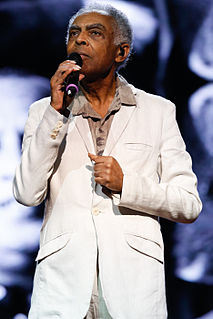A Quote by John Ruskin
There is no process of amalgamation by which opinions, wrong individually, can become right merely by their multitude.
Quote Topics
Related Quotes
We are sufficiently conscious of this dimension or quality of Brazil as a melting pot, as a culture and a nation that is being subjected to an amalgamating process. More than just a mixing process, it is an amalgamation where the fragments, the parts in collision, really interact profoundly. They become another thing after the contact.
Liberty is meaningless where the right to utter one's thoughts and opinions has ceased to exist. That, of all rights, is the dread of tyrants. It is the right which they first of all strike down. They know its power. Thrones, dominions, principalities, and powers, founded in injustice and wrong, are sure to tremble, if men are allowed to reason... Equally clear is the right to hear. To suppress free speech is a double wrong. It violates the rights of the hearer as well as those of the speaker.
Liberal education, which consists in the constant intercourse with the greatest minds, is a training in the highest form of modesty. ... It is at the same time a training in boldness. ... It demands from us the boldness implied in the resolve to regard the accepted views as mere opinions, or to regard the average opinions as extreme opinions which are at least as likely to be wrong as the most strange or least popular opinions
Law is a process. If there is equality of process for everybody, then that's our definition of justice. Whether or not what is done is right or wrong, you follow the process. And so, the end result is just by definition within that alternative universe that is American law. Most people still operate within a moral universe where principles of good and bad and what is right and wrong in itself, and not just as a result of the process.
If there is no absolute moral standard, then one cannot say in a final sense that anything is right or wrong. By absolute we mean that which always applies, that which provides a final or ultimate standard. There must be an absolute if there are to be morals, and there must be an absolute if there are to be real values. If there is no absolute beyond man's ideas, then there is no final appeal to judge between individuals and groups whose moral judgments conflict. We are merely left with conflicting opinions.
I have never made it a consideration whether the subject was popular or unpopular, but whether it was right or wrong; for that which is right will become popular, and that which is wrong, though by mistake it may obtain the cry or fashion of the day, will soon lose the power of delusion, and sink into disesteem.
Upon the subjects of which I have treated, I have spoken as I have thought. I may be wrong in regard to any or all of them; but, holding it a sound maxim that it is better only sometimes to be right than at all times to be wrong, so soon as I discover my opinions to be erroneous, I shall be ready to renounce them.
The great cognitive shift is an expansion of consciousness from the perspectival form contained in the lives of particular creatures to an objective, world-encompassing form that exists both individually and intersubjectively. It was originally a biological evolutionary process, and in our species it has become a collective cultural process as well. Each of our lives is a part of the lengthy process of the universe gradually waking up and becoming aware of itself.
There's nothing "wrong" with anything. "Wrong" is a relative term, indicating the opposite of that which you call "right." Yet, what is "right"? Can you be truly objective in these matters? Or are "right" and "wrong" simply descriptions overlaid on events and circumstances by you, out of your decision about them?






































